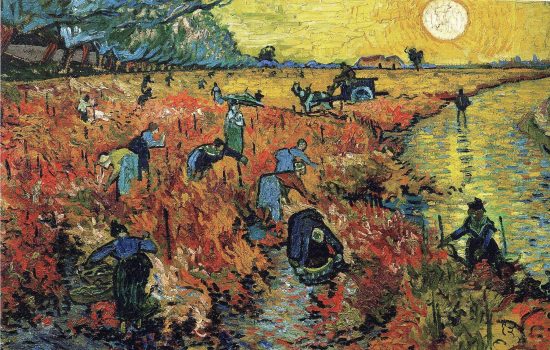Nell’ambito del workshop “Food Regulation in action: Procedures and Proceedings in EU Food Law” che si terrà in Lussemburgo dal 24 al 25 Settembre 2015, l’avvocato Daniele Pisanello relazionerà sul tema della gestione delle crisi alimentari da parte del Controllo Ufficiale.
Organizzato da EIPA (European Institute for Public Administration), l’evento vuole fornire un approfondimento sulle procedure di decision making (adozione di atti normativi nel settore alimentare) e sulle procedure di sicurezza alimentare, nel complesso insieme di food law europea. La seconda giornata sarà aperta dalla relazione dell’avv. Pisanello, dal titolo “Containing serious food scarescrisis. The implication of national authorities in the enforcement of food safety procedures and in the enactment of emergency measures”.
Obbiettivo del workshop è offrire ai partecipanti una analisi commentate delle diverse procedure esistenti nell’ambito della regulatory europea in tema di alimenti. Le diverse sessioni analizzeranno verticalmente le diverse procedure di decision making, le relative fasi e regole procedurali, i ruoli e le competenze dei players (Commissione, Comitati, EFSA, etc.).
Il panel di experts vedrà la partecipazione di: Juan Diego RAMIREZ-CARDENAS, Senior Lecturer, European Centre for Judges and Lawyers, EIPA Luxembourg; Aleksandra WESOLOWSKA, Scientific and Regulatory Affairs Manager, Labelling and Claims Policies, Coca-Cola Europe; Citlali PINTADO, Legal Officer, Legal and Regulatory Affairs Unit, EFSA; Dr Mihailis KRITIKOS, Lecturer, Vesalius College, Vrije Univeristiet Brussel (VUB); Simone GABBI, Legal Officer, Legal and Regulatory Affairs Unit, EFSA; Raymond O’ROURKE, Barrister & Food Regulatory and Consumers Affairs Lawyer, member of EFSA’s Management Board (invited); Daniele PISANELLO, Food Lawyer, Lex Alimentaria Law Office, Bologna; Peter GJOTLER, Director, LexNet European Information SIA, Programme Director, Riga Graduate Law School of Law, Attorney-at-law, Grayston & Company, Brussels.
Maggiori dettagli sono disponibili nella pagina ufficiale dell’evento (disponibile cliccando qui).
Di seguito riportiamo il programma del Workshop e gli altri dettagli.
THURSDAY 24 SEPTEMBER 2015
08.45 Registration of participants
09.00 Welcome and introduction to the seminar
Juan Diego RAMIREZ-CARDENAS DÍAZ & Aleksandra WESOLOWSKA
Part I: Procedures in EU Food Law
I.1 DECISION-MAKING PROCEDURES
09.30 Taxonomy of EFSA’s scientific outputs
The corpus of EU food norms is characterized by its size and diversity. Together with traditional legal instruments (regulations, directives and decisions), legally binding and applicable at large by food business operators, many other instruments exist, of a predominant scientific nature which are elaborated by EFSA and the Commission in the exercise of their respective risk analysis tasks. This session is intended to analyse these instruments, as output of EU food law rule-making and other procedures, focussing on their definition, their potential legal force or not and impact on states authorities and industry.
Citlali PINTADO
10.30 Coffee break
11.00 Negotiating and adopting food legal rules & instruments: legislative procedures and procedures for the adoption of delegated and implementing acts
This session will provide a practical analysis of the various procedures leading to the enactment of EU food rules and requirements, describing their phases and the various actors (EU institutions, pertinent committees, EFSA, etc.) intervening in them. The aim is to study how national administrations and food operators can participate in them, to express their interests and to potentially influence their outcome. After a reference to the ordinary legislative procedure, this session will mainly focus on the adoption of food delegated and implementing acts (difference between of this type acts, features of the new procedures, etc.) illustrating this with a reference to the legal implementation of new Regulation (EU) No 1169/11
Dr Mihalis KRITIKOS
12.30 Lunch
I.2 RISK ASSESMENT AND AUTHORISATION PROCEDURES
14.00 EU Food Law and Science: risk assessment and scientific evaluation procedures
Science plays a key importance in EU Food Law procedures, for scientific opinions impact upon the legal standards adopted and are determinative in pre-market authorisation and notification procedures. This session will analyse both the architecture (EFSA and its scientific structure of committee and panels) and the procedures to obtain reliable and independent scientific advice, and study the value of expert findings on final Food Law decisions, highlighting how they can condition the choices operated by the EU risk manager authorities.
Simone GABBI
15.30 Coffee break
16.00 Industrial considerations and food regulation. Business operators and their involvement in pre-market authorisation and notification procedures
Food business operators and their trade associations liaise with EU food administration, in the context of pre-market authorisation and notification procedures, which aim at ensuring consumer information, boosting industry innovation and maintaining a high level ofsafety. This session will present a commented description of the above procedures, and illustrate to food operators the procedural steps to be complied for the approval of a dossier, in two types of cases: the authorisation of Health Claims and the approval of GMOs.
Aleksandra WESOLOWSKA and Raymond O’ROURKE
17.30 End of the first day
17.45 Cocktail reception
FRIDAY 25 SEPTEMBER 2015
Part I: Procedures in EU Food Law (continued)
I.3 FOOD SAFETY PROCEDURES
09.00 Containing serious food scares. The implication of national authorities in the enforcement of food safety procedures and in the enactment of emergency measures
When incidents related to food pose a potential serious risks to human health and cannot be managed with routine procedures, a general crisis-management plan shall be followed. In this session, it will be explained how national authorities enforce this general plan by drawing their own contingency plans according to Regulation (EC) No 882/2004. Past and recent food scares will provide illustrations on how to outline the plans in practice.
Daniele PISANELLO
10.30 Coffee break
Part II: Proceedings in EU Food Law. Judicial enforcement and litigation on food requirements
II.1 PUBLIC ENFORCEMENT AND LITIGATION
11.00 Prosecuting Member States’ failures to fulfil their EU Food Law obligations. The infringement procedure
If the Commission is of the opinion that a state authority has breached one of its obligations under EU Food Law, it will initiate an infringement procedure against the corresponding Member State. After studying the most common violations of EU Food Law requirements and presenting the most recent infringement cases, this session will provide a practical commentary of the procedure and present recommendations and advice so that the defendant administrations improve their defence strategies in response to Commission investigations.
Juan Diego RAMÍREZ-CÁRDENAS DÍAZ
12.30 Lunch
II.2 PRIVATE ENFORCEMENT AND LITIGATION
14.00 Litigation on EU Food Law before the European Courts (1): challenging the legality of food measures
The various measures and provisions adopted in the food sector (i.e. a Commission decision, a certain scientific opinion, a decision of a registration of a product, etc.) can have important financial and economic implications on food stakeholders (industry, consumers and so on). This opens the question on whether and to what extent these measures could be contested before the Court of Justice of the EU and susceptible to judicial review and on which potential grounds. This is a matter which will be addressed in this session. The most recent case law in the food law area will be scrutinized in response to the above questions.
Peter GJORTLER
15.30 Coffee break
16.00 Litigation on EU Food Law before the European Courts (2): the new legal standing of individuals and economic operators and overview of jurisdictional remedies
The Lisbon Treaty and the most recent case law of the Court of Justice of the EU have resulted in a new reinforced legal standing of individuals and economic operators before the EU jurisdictions and their increased empowerment to contest the legality of EU food law measures. This session will comment on the new locus standi of individuals, providing them with on the various legal remedies at their disposal to attack these measures.
Peter GJORTLER
17.00 Conclusions and evaluation
17.30 End of the seminar
Location
Building of the Chambre des Métiers
2 Circuit de la Foire Internationale
Room 0.1, ground floor
1347 Luxembourg











